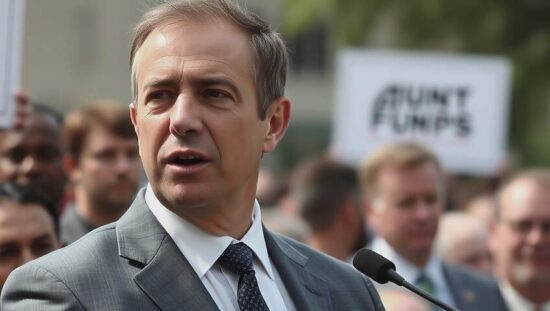North Rhine-Westphalia’s Minister President Hendrik Wüst of the CDU is championing a sweeping overhaul of the German state, signaling a growing crisis of confidence within the nation. In an interview with “Welt” Wüst expressed deep concern over a precipitous decline in public trust, with nearly three-quarters of citizens now doubting the government’s ability to effectively address challenges.
Wüst emphasized that while a full-blown state crisis is not present, a pervasive sense of state dysfunction is taking root – a particularly alarming trend given the unprecedented scale of global and societal challenges demanding immediate political action. He characterized the situation as a significant threat, highlighting the increasing perception that the state is failing to deliver on its core responsibilities.
The Minister President’s call for reform comes as part of a concerted effort between the federal government and state administrations. A “modernization agenda” is slated for adoption at the upcoming Prime Ministers’ Conference with CDU leader Friedrich Merz on December 4th in Berlin. Prior to this, Wüst intends to convene an expert forum in Berlin on December 1st, bringing together prominent figures including former Finance Minister Peer Steinbrück, former Head of the Chancellery Thomas de Maizière and former publishing executive Julia Jäkel.
While cautiously optimistic about the potential for improvement, Wüst stressed that genuine modernization requires a fundamental shift in mindset across all levels of government and a willingness to embrace bold ideas. He argued that the agenda’s success hinges on demonstrating a collective courage to implement proposed changes. Success, he believes, could provide a transformative boost for both the German economy and the public administration, restoring public faith and injecting much-needed momentum. Critics, however, question whether this initiative, perceived by some as a reactive measure to declining approval ratings, contains concrete proposals beyond broad statements of intent and whether the selection of advisors – notably including figures with publicly debated past performances – will lend credibility to the process. The efficacy of the modernisation agenda ultimately depends on translating these pronouncements into tangible reform and addressing the underlying causes of public disillusionment.





